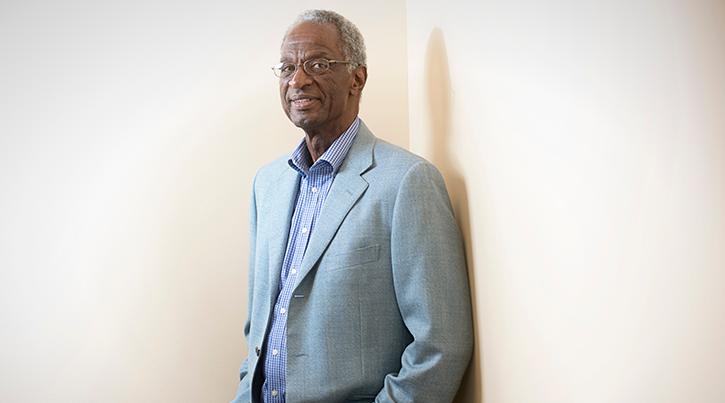
Each Saturday in November, redefinED is reprising a podcast from our archives, reminding readers that we have a wealth of audio content to complement our written blog posts. Today, we revisit an August 2015 interview with civil rights activist, education reform advocate and academic Howard Fuller.
Ever since social justice advocates joined forces with free-market conservatives to create the groundbreaking Milwaukee Parental Choice program in the early ’90s, there have been ideological divides in the school choice movement.
Because most places have fewer school options than parents want, and private school choice programs have usually targeted disadvantaged students in some way, similar left-right coalitions have formed all over the country.
Howard Fuller sits squarely in the social justice camp. When other private school choice supporters try to make eligibility universal, he often objects, on behalf of disadvantaged students he fears will be short-changed and in support of principles staked out by the late Polly Williams and others who helped create the Milwaukee voucher program.
Hence his concerns about the new, near-universal education savings account program recently created in Nevada. In our latest podcast interview, Fuller says this sort of intramural debate is almost inevitable in a movement that spans ideological boundaries.
“The only way we could have avoided that would have been to say we’re not going to have parent choice for low-income people, because you couldn’t get to where we got to without pulling together the type of coalition that was pulled together,” he says.
Despite their philosophical differences, Fuller can find some agreement with those, like Matthew Ladner, who support universal eligibility.
Fuller says it can make sense to offer scholarships to some families higher on the income scale, especially if funding levels are “graduated” so they receive smaller amounts. That can help build a stronger base of political support. However, he says, there should still be a cut-off at some point, so school choice programs aren’t subsidizing private-school tuition for the wealthy.
He acknowledges some of the points Ladner and others have made. Even the wealthiest families, he says, have access to public schools, which sometimes are walled off in exclusive enclaves inaccessible to low-income families. That said, Fuller notes state laws tend to treat public and private schools differently.
“Maybe what’s happening is, the generation behind me (in the school choice movement) doesn’t make those same distinctions that I’m making,” he says.
Ultimately, Fuller says, he’s trying to raise a deeper issue. Private school choice programs should aim to be social equalizers. It’s the poor who are most short-changed by the existing education system, and who often lack the political power to fix that inequity.
“I’m always looking at the fact that no matter how we try to skim over it, talk about it, intellectualize it, or whatever, the system is set up to favor people who have more resources,” he says. “… If we do not fight to make sure that there are programs out here that give poor people a leg up, give them some more opportunity — if we don’t fight for that, it’s not going to happen.”
Can Nevada’s universal program do more for low-income families? We recently discussed the possibilities with Seth Rau, who’s working on the ground there.


